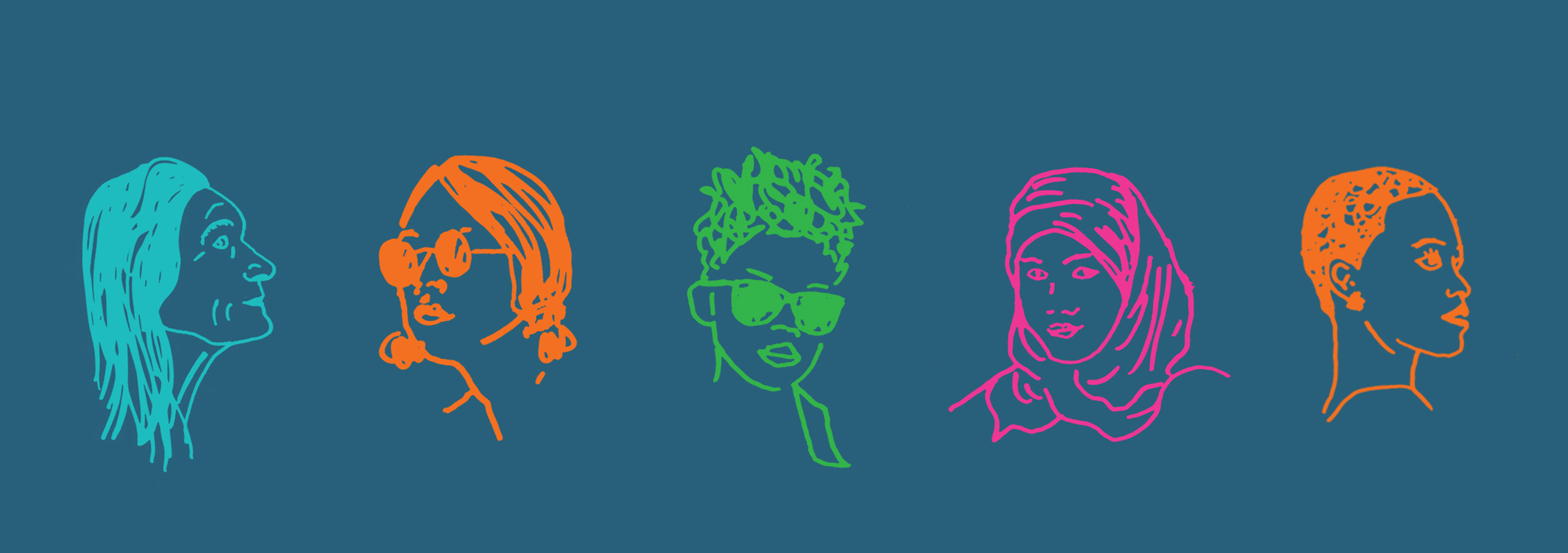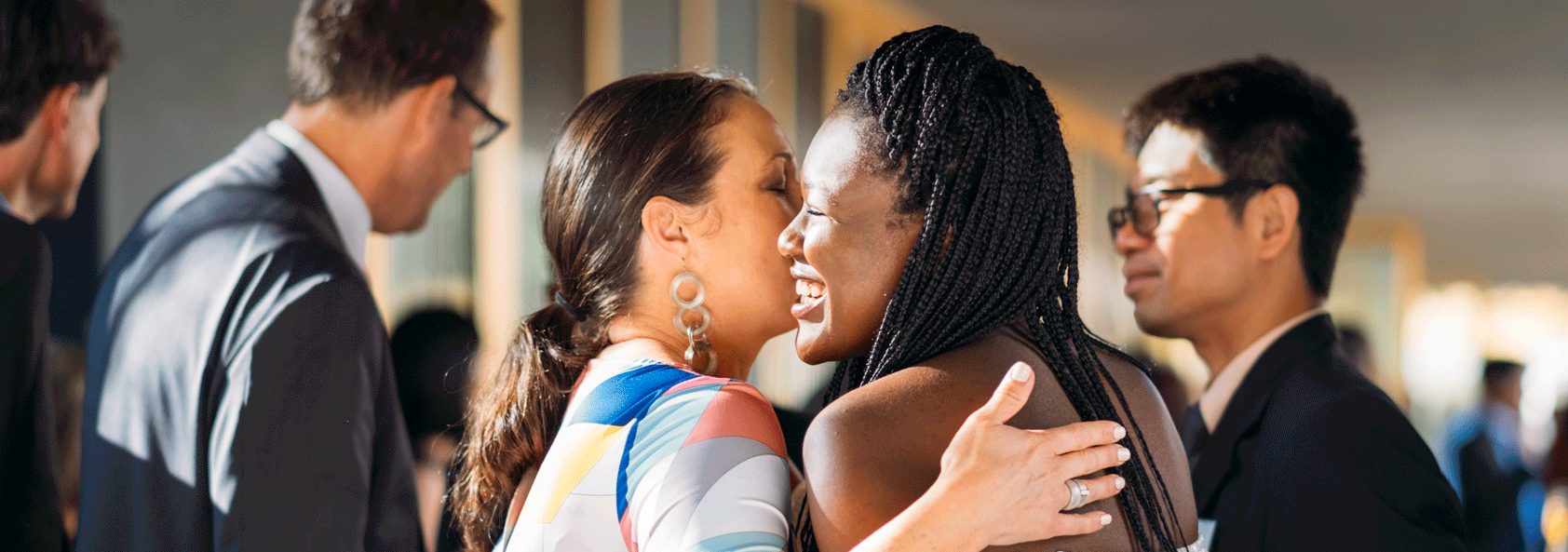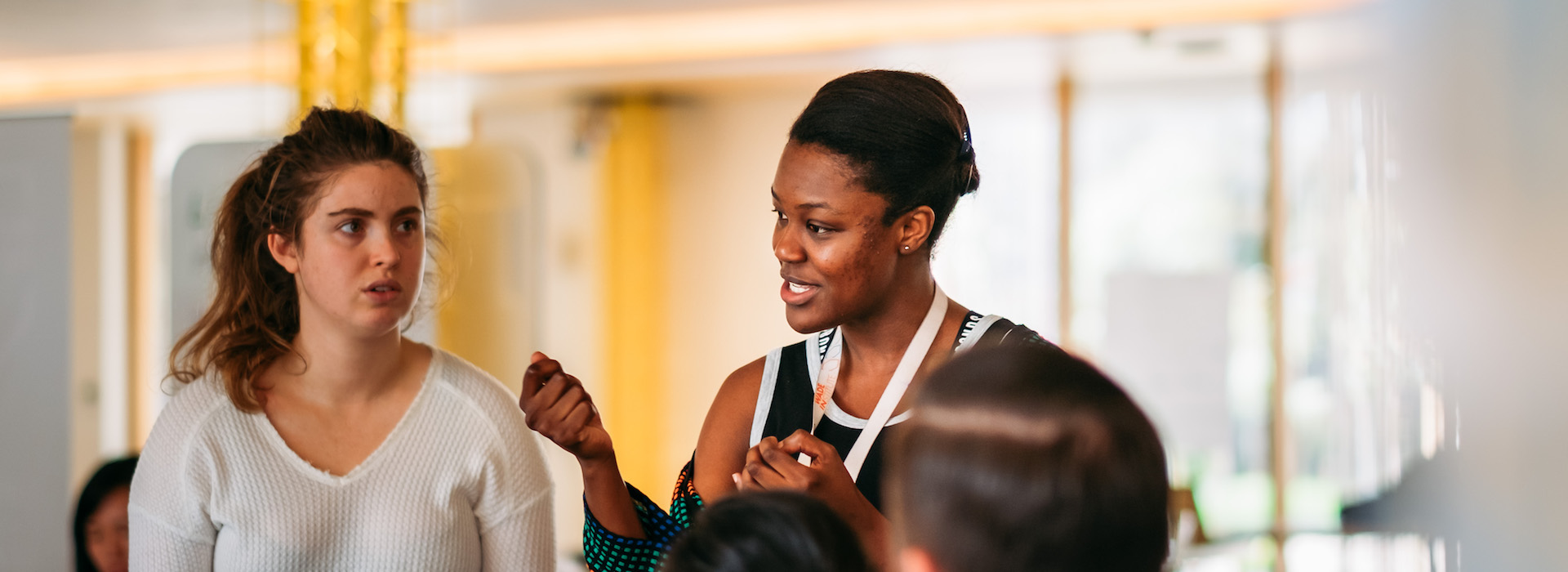For International Women’s Day (8 March) you’ll see a lot of stories about impressive and accomplished women breaking barriers and fighting the accepted norms for how we see women and what they can achieve.
We need to tell these stories to push forward the conversation about gender equality and normalise the voice of powerful women.
Here we want to shine a spotlight on the women in our everyday lives who have shaped us, our views, the impact we have on the world, but who don’t get the attention they deserve.
We spoke with five of our students from The University of Melbourne’s Master of Entrepreneurship who shared stories about these women in their lives. The women who shaped how they see the world, understand their own drive, and pushed them to have a bigger impact.
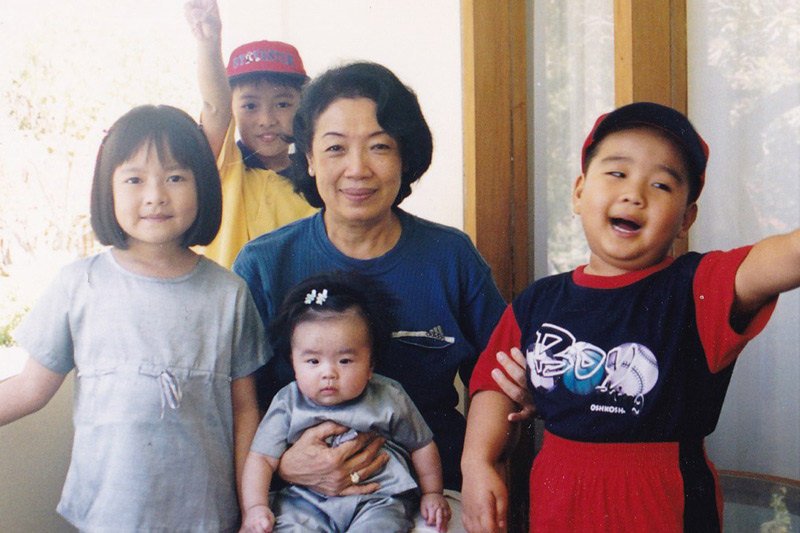
Melissa Tenggara (2017 student) – My grandmother
“My grandmother acquired the shipping company, PT Sinar Maluku Lines, back in 1969 at a time when it was not very common for women to continue work after having children. But she resisted the pressure to stay at home and went on to establish a successful business.”
“I can clearly remember going to her office every day for lunch from when I was about three years old. Looking back, it was her way of ‘introducing’ me to the business. Today, she’s 75 years old and still goes to work every morning.”
“Seeing how strong and decisive my grandmother is has really given me the confidence to pursue a career in business and, ultimately, set-up my own social enterprise.”
[Excerpt from a longer article originally published in the Faculty of Business and Economics Newsroom]
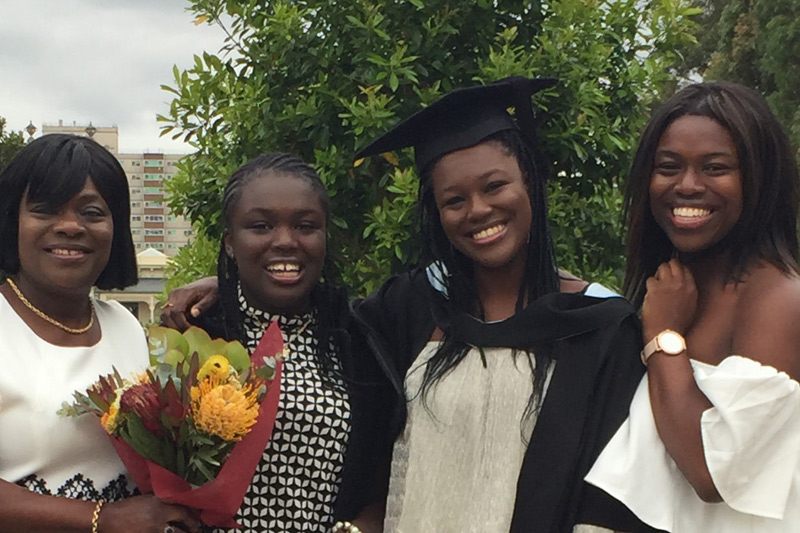
Sarah Agboola (2016 alumna) – My mum
“My mother is one of the bravest people I have come across in my life. She lost both her parents when she was a child but worked herself to independence. She took a risk and moved from Nigeria to Canada at age 24 without knowing a soul in the country or having a clear idea of what would await her when she arrived.
She was one of the first black women to work in our local hospital when we moved to Australia in the late 90’s, and she has raised myself and my siblings by herself since my father died in 2012.
When I think of everything she has gone through in life, and the fact that she has taken on every setback and just used it as a chance to push harder, I can only think of how lucky I am to be in a position to have someone with her strength backing me.”
[Sarah is currently working on her startup, M-Time, which gives parents time for self care by connecting them with Mumcierges, all-in-one assistants who can do cooking, cleaning, chores and childcare.]
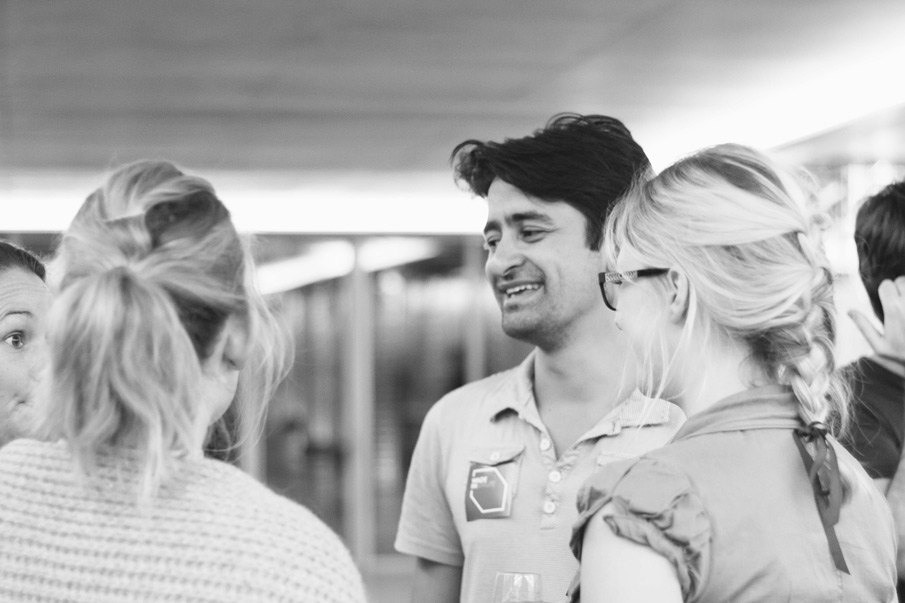
Rosh Ghadamian (2016 alumnus) – My mum, aunty, and girlfriend
“The women in my life have been huge role models and supporters for me. From my mum, who has always been a bed-rock of emotional and financial support when starting my first business.
My aunty who gave me opportunities to travel and work with business leaders around the world which gave me a glimpse into the entrepreneurial path. To my girlfriend who is an inspiration, constant companion and cheerleader for everything that I do.
Women are also the biggest consumer group for my business [The Baby Club] and have been the most patient, giving and understanding group I could ask for. They care deeply about the products, friendships and families they belong to and they have a quiet strength that helps empower the group of men and women under them to grasp further than they were able to themselves. “
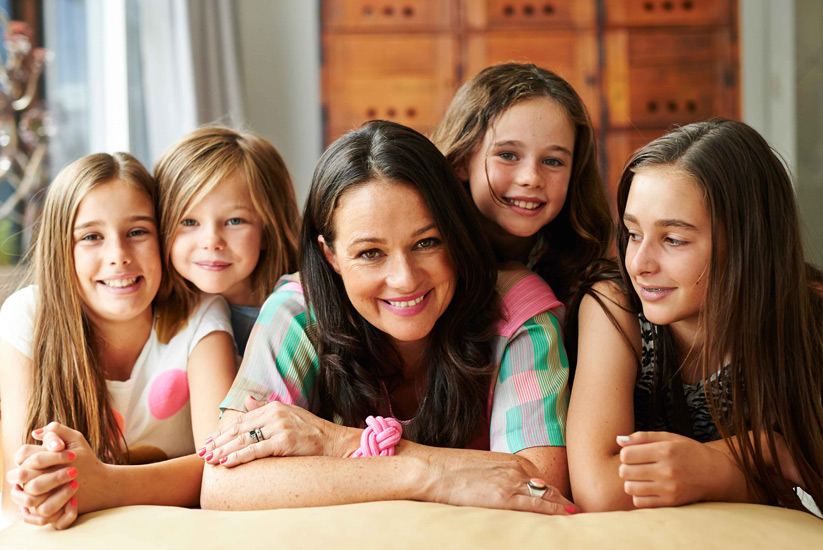
Photo credit: photographer Nikole Ramsay (shot for The Grace Tales).
Madeleine Grummet (2016 alumna) – My daughters
“I don’t have to look further than my four daughters to find the purpose, passion and energy I need to propel myself forward. They are my living life lesson, every day. They teach me humility, humanity, humour, and that there is no one way to be a girl (or woman) in the world.
My girls are distinct, unique, insightful, and don’t yet know their own power. And it is a privilege to simply lay down the path from girl to woman for them, to teach them, learn from them, know them, and nurture them when they stumble (as they do, and will, like us all).”
“I have always said to them ‘Do as I do, not as I say’ and tried to lead by example. Mentors and role models are so crucial in young girls lives.”
“I also frequently remind them I was a woman, then wife, and then mother, and that although they are of course incredibly important in my life, they are not my everything. We are each made of many moving parts. And we each have one quick life, so you need to find your purpose, find your tribe and use your energy wisely.
My four daughters remind me to be courageous and brave enough to take measured risks and constantly strive for purpose that is bigger than them or me. [My startup] Girledworld was born of that.”
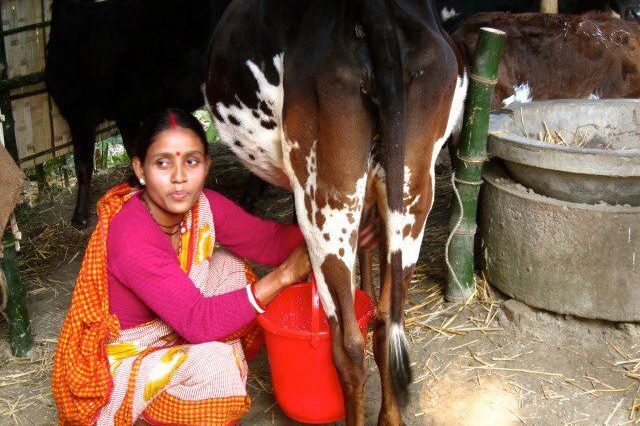
Daarshinie Nadarajan (2017 student) – The women of Bangladesh
“The women of Madhupor, Bangladesh are amongst the strongest and most persistent people I know. I met these wonderful women in 2011, when I was doing an internship with Grameen Bank – a Nobel Peace Prize winning micro-finance organisation.”
“Characterised by gender inequality, low education and poor hygiene, women in Bangladesh never had the opportunity for any financial freedom. Less than 10% of Bangladeshi women have any form of credit from the conventional banking system. This was a humbling experience – these women allowed me to see the power that credit had on alleviating gender inequalities. I was 21 then, financially supported by my parents and never exposed to any form of financial challenge or discrimination. These women had to fight for every basic need that I took for granted.”
“Women borrowing from Grameen represents a social revolution. There was a lot of resistance to the bank’s practices, many women faced threats as a result of this. Despite that, there was a fighting spirit to face these threats and borrow from Grameen, because they saw an opportunity that they wouldn’t otherwise have. For women to be granted the loan was a definite effect on the family. Children benefit automatically with better clothes, food and the possibility of education. Men often spend the money on themselves; women spend it on the family.”
“Today, the bank has almost 8.3 million borrowers. The bank is self-financing, as the women who started off as borrowers have progressed to savings. Having since graduated from university and gone out to the corporate world, I’ve seen how gender inequalities manifest in very different ways. Meeting these women has been a huge inspiration for me to want to create better financing solutions for women everywhere, of any circumstance.”

